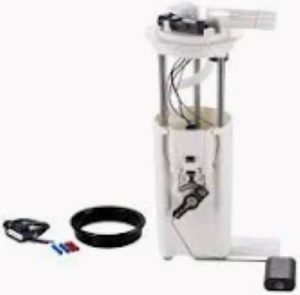Modern engines, especially those with direct fuel injection systems like in gasoline engine vehicles benefit greatly from having a high-pressure fuel pump. This means the high-pressure fuel pumps deliver fuel directly to the combustion chamber at pressures in excess of 2,000 PSI (pounds per square inch), so as create an efficient level of atomization. The greater air pressure allows for an even more exact and controlled mix of fuel, which improves both power output as well as gas mileage. High-pressure pumps have been found to enhance fuel saving up to 15% in engines; this makes the technology a best solution for combustion optimization.
Turbocharged and high performance engines require a durable High pressure fuel pump to keep up with their increased power output. For example, the well-known Volkswagen EA888 2.0 TSI engine has a high-pressure Fuel Pump to handle greater fuel needs as it gets into boost. If not enough pressure is present, turbocharged motors can sound the alarm and in some cases cut fuel to prevent a lean conditions which would square up ample engine knock,or worse damage.
High-pressure fuel pumps also play an assisting role in meeting tighter emissions regulations by improving efficiency gains. Bosch, an industry stalwart in fuel system technology, for example sees high-pressure systems as really key to reducing particulate by having a finer spray of the fuel. This finer atomization decreases the amount of fuel that is not fully burned, thereby lowering exhaust emissions as a whole and improving efficiency)null In fact, some Bosch fuel pump models even go as far to claim up 20% less particulate simply by design which is a significant contributor to global emissions standards

It is a trade-off between durability and maintenance costs. High-pressure fuel pumps, although powerful require more maintenance that is precisely its higher stress workload gives a greater wear on parts. In recent years, turbocharged models from Audi and BMW have suffered elevated failure rates of high-pressure fuel pumps — resulting in repairs that cost thousands. Although the life of these high-pressure pumps can be made longer by regular inspections and maintenance, this is certainly another point which could add to overall vehicle ownership.
Although in a lot of cases, high-pressure fuel pumps has their own advantages and they can be used to make your vehicle efficient & High-performance behemoth however these may not necessarily suited for every application! High-pressure systems only really start to become worthwhile in high-performance, turbocharged or direct-injection engines as although they bring benefits with them, the added cost and complexity may not always be offset by those gains.